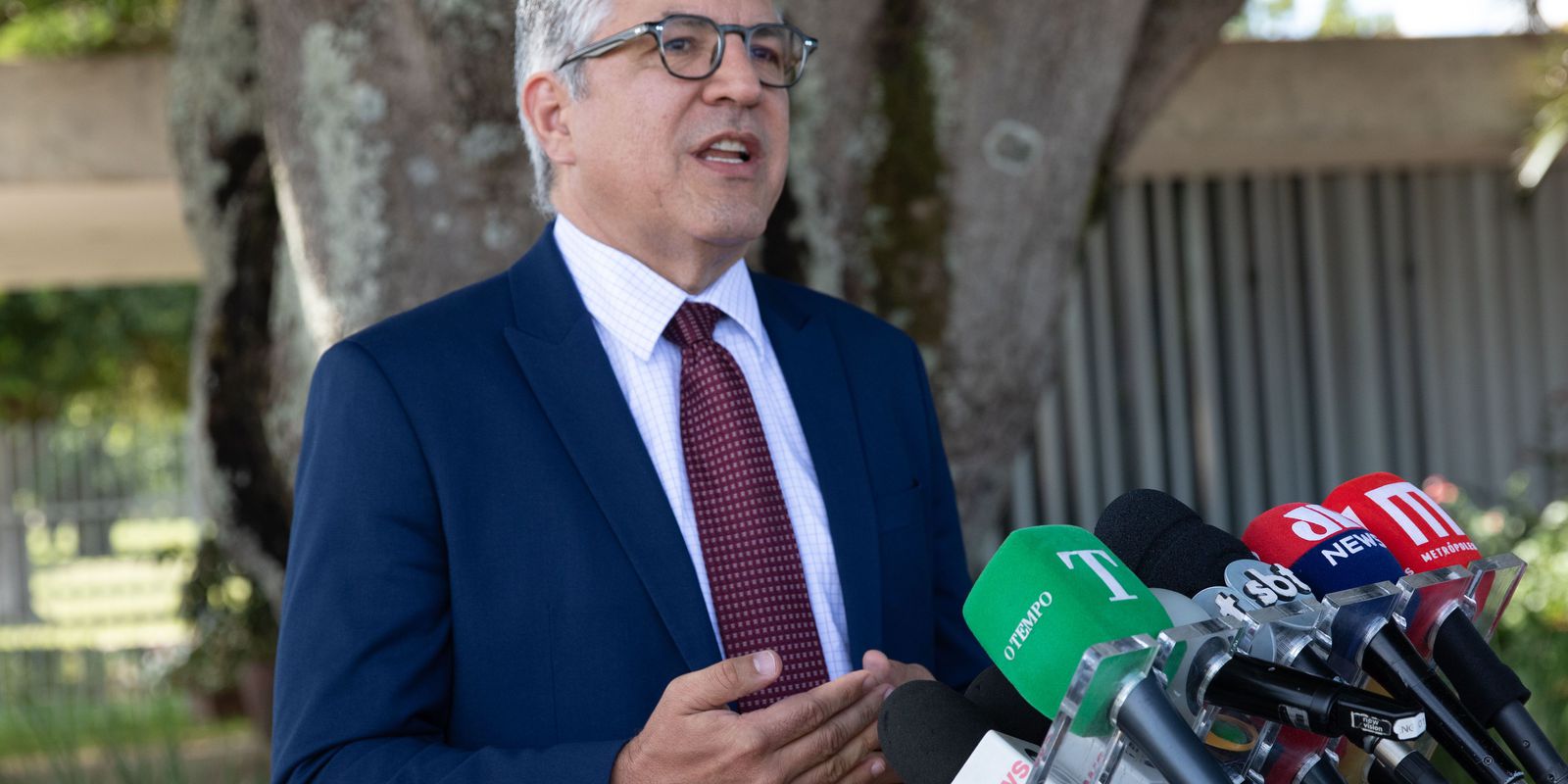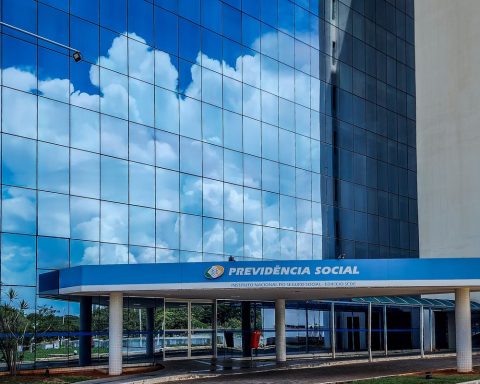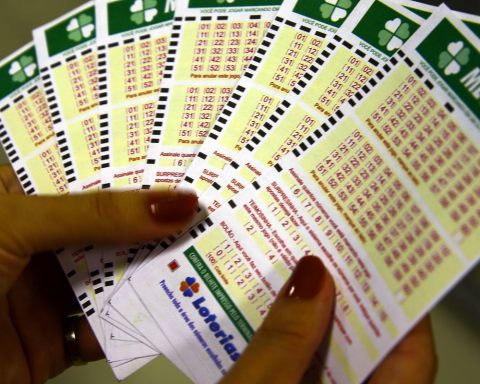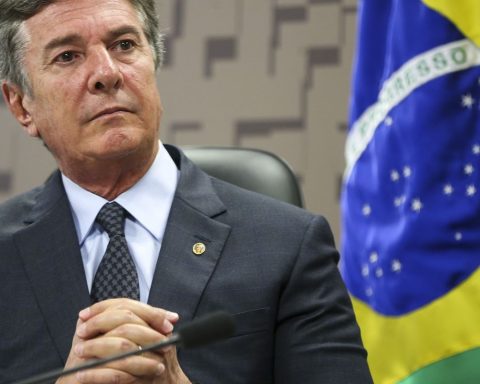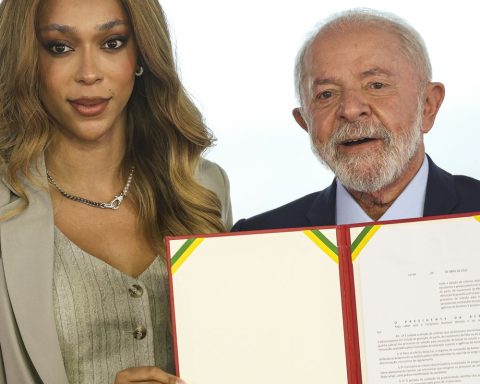President Luiz Inácio Lula da Silva should keep internal agendas at the Palácio da Alvorada until, at least, Wednesday (29). According to the Minister of Institutional Relations, Alexandre Padilha, the president is very well and has a positive evolution in his state of health.

On the last 23rd, the president underwent tests at the Hospital Sírio-Libanês, in Brasília, and was diagnosed with bacterial and viral bronchopneumonia due to Influenza A. canceled the trip he was going to make to China this week. Today, he was evaluated by physician Ana Helena Germoglio, from the Presidency’s medical service, who, along with physician Roberto Kalil, is in charge of the president’s treatment.
“This afternoon [ele] must receive more ministers. The medical recommendation is that you stay here because it improves rehabilitation and also reduces exposure,” said Padilha, as he left the Alvorada Palace, after meeting with the president this morning.
This week, the March of Mayors will take place in Brasilia and vice-president Geraldo Alckmin will represent the federal government, as scheduled, since Lula would be in China.
According to Padilha, there is still no new date for the trip, but there is “a lot of interest from the Chinese government in receiving the president”. He would travel on Sunday (26) with the aim of expanding trade relations between the two countries. The forecast of the Ministry of Foreign Affairs is that at least 20 trade agreements would be signed during the visit.
In the entourage, there would be hundreds of businessmen, in addition to governors, senators, deputies and ministers. Alexandre Padilha[https://agenciabrasil.ebc.com.br/radioagencia-nacional/politica/audio/2023-03/ausencia-de-lula-modifica-agenda-de-comitiva-brasileira-na-china” target=”_blank”>explicou que as atividades empresariais foram mantidas. Muitos desses empresários já estavam na China, especialmente do setor do agronegócio, acompanhando o ministro da Agricultura, Carlos Fávaro, que cumpre agenda no país, em antecedência à viagem de Lula.
Marco fiscal e MPs
A previsão era de que o Ministério da Fazenda entregasse o novo marco fiscal que substituirá o teto de gastos, após o retorno da China. Segundo Padilha, a data exata ainda não está definida, mas o governo vê um ambiente muito positivo no Congresso Nacional para que a nova regra seja debatida com qualidade e celeridade.
“É muito importante o país ter uma regra definida que ultrapasse os governos, vá além do governo Lula, para garantir a sustentação de investimentos no país”, disse.
Segundo o ministro das Relações Institucionais, também já entrou em pauta o esforço concentrado do Congresso para votar 13 medidas provisórias (MPs) do governo anterior. E, tão logo sejam apreciadas, as MPs do governo Lula devem entrar no calendário de votação. Entre elas, estão a reestruturação do governo federal, a recriação dos ministérios da Cultura e do Desenvolvimento Agrário e a do novo Bolsa Família.
“O governo tem aprovado tudo aquilo que buscou votar, tem mantido o calendário de votação”, disse Padilha. “E acredito que tenha compromisso tanto dos presidentes das duas Casas [Câmara e Senado], as well as the two Houses, deputies and senators, with the content of the provisional measures. Based on this commitment, we are going to build a timetable for it to be approved in due time, so that these programs can continue in the federal government”, he added.
For more than 50 days, presidents Arthur Lira and Rodrigo Pacheco have been fighting an arm wrestling over the rite of MPs. Last week, the president of the Senate, Rodrigo Pacheco (PSD-MG), decided that the analysis of provisional measures sent by the Lula government will again follow the rite provided for in the Federal Constitution, that is, they will pass through the joint committees.
Procedure
Since 2020, to streamline the work of parliamentarians due to the covid-19 pandemic, the analysis of MPs in joint committees has been withdrawn. Thus, provisional measures began to be analyzed directly in plenary – first in the Chamber, for 90 days, and then in the Senate, for 30 days –, with amendments allowed.
The measure was justified, at the time, as extremely exceptional due to emergency health measures. With the decision of the President of the Senate, the joint committees must immediately have members appointed by the leaders of each House. In each MP analysis, the presidency and the rapporteurship of the collegiate bodies are once again alternated between deputies and senators.
